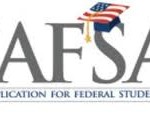Bright Futures Scholarships May Soon Require Less Paperwork

Amanda Jaeger/flickr
High school students who want Bright Futures scholarships for college would have less paperwork to submit under a bill being considered in Florida.
With no discussion or fanfare, the Senate Education Committee has approved a bill that would remove a small piece of red tape for students who want to receive Bright Futures scholarships.
Under the bill, SB 680, students would not be required to submit a Free Application for Federal Student Aid (FAFSA).
The FAFSA requirement went into effect with the 2011-12 academic year. The form is used by universities to determine the financial need of students based on family income.
The proposal to repeal it comes down to paperwork.
Not surprisingly, there’s been a substantial increase in workload for the folks who have to process these forms at university financial aid offices.
In 2010-11, 70 percent of Bright Futures recipients filed a FAFSA. The following year, applicants had no choice but to submit the form, and that created 30,000 more forms than average to process.
About one-third of FAFSA’s each year are randomly selected by the U.S. Department of Education for verification, according to the Florida Board of Governors,
That’s a lot of extra forms to be double-checked.
Lawmakers are also debating how to grant in-state tuition to the U.S.-born children of undocumented immigrants after a federal judge struck down a state law. Previously, Florida determined the residency of students under the age of 25 using their parents’ information.
Out-of-state tuition is typically at least three times more expensive.
By law, students under the age of 24 must submit the FAFSA using their parents’ information. But if the parents are not U.S. citizens or do not have a Social Security number, students could not submit the application and would not be eligible for Bright Futures.
If the requirement is repealed, students won’t have to disclose family financial information to be eligible for Bright Futures – which makes sense because the scholarships are merit-based and not based at all on need.
Eliminating the required use of FAFSA might be necessary because of the federal court ruling.
Parents also expressed concerns about identity theft.
If the Legislature approves the bill, students who are only seeking Bright Futures money will no longer have to fill out a FAFSA starting this July.

